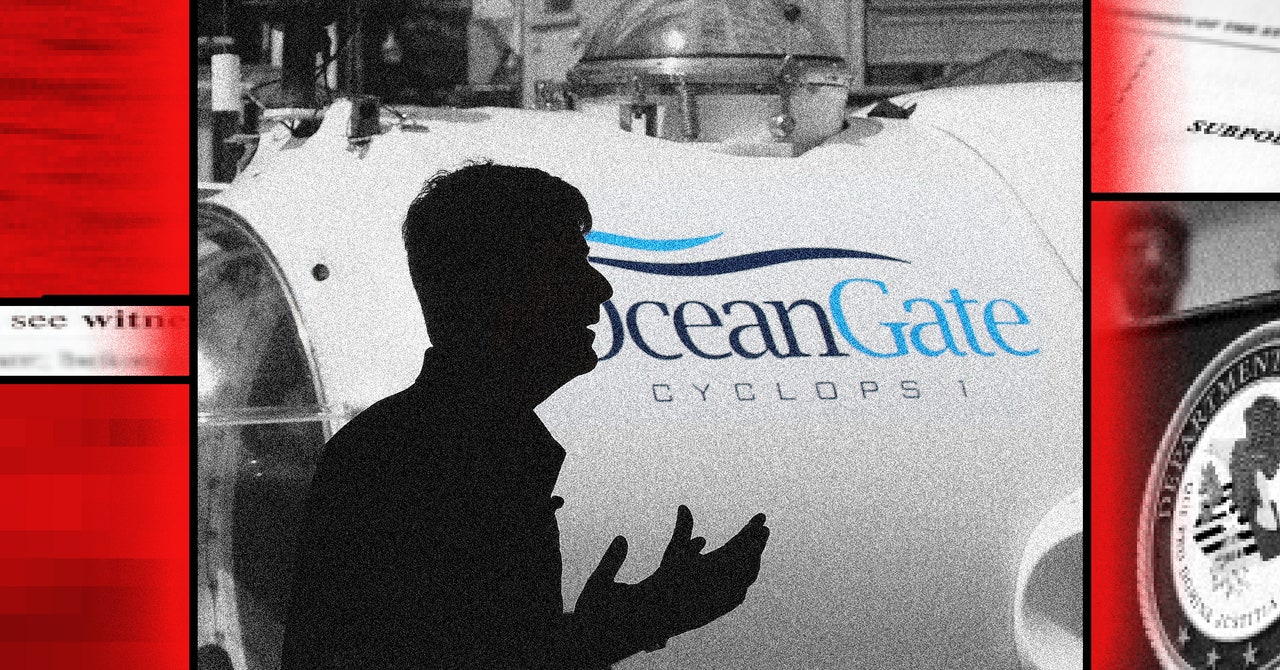The apparent success of the leaseback arrangement might explain how Rush was able to attract what was OceanGate’s largest ever investment in 2020, at a time when the company was working on the expensive task of replacing the Titan’s first hull that had cracked during testing. The $18 million in equity funding allowed OceanGate to rebuild the Titan and move forward with its first Titanic expedition in 2021. Around this time, documents indicate that OceanGate may have had more control in the taken-over ownership of Cyclops 2 LLC.
But by 2023, OceanGate seemed to be on a much shakier financial footing. Several witnesses at the Coast Guard hearings testified to what they perceived to be OceanGate’s financial difficulties in the run-up to the final Titanic expedition, including Rush foregoing his salary and occasionally loaning the company money from his personal funds.
Demand for the $250,000 Titanic dives appeared to be tailing off. As late as May 2023, one of OceanGate’s affiliate sellers was advertising that there were still “some very limited dates and spots available at a 40 percent discount” for that summer’s expeditions. This has not been reported previously.
If the federal investigation results in any criminal charges, they would proceed alongside a civil lawsuit currently in a federal court in Washington state. In that case, the family of famed Titanic explorer Paul-Henri Nargeolet is seeking $50 million for his death aboard the Titan, with the lawsuit naming as defendants OceanGate, Rush’s estate, and a number of other individuals and companies connected to the ill-fated submersible. Rush’s estate recently filed a motion to dismiss the complaint against it, stating: “As Rush’s employer, OceanGate is liable for Rush’s alleged negligence.”
Maritime lawyer Alton Hall is skeptical that Nargeolet’s family will recover anything close to the $50 million they are seeking. A 1920 law, the Death on the High Seas Act, generally limits damages to pecuniary losses, such as future earnings. One exception would be if Nargeolet and his fellow Titan passengers, whom OceanGate dubbed “mission specialists,” qualified as seamen under another piece of legislation called the Jones Act. “There are literally books and books written on who is and who isn’t a Jones Act seaman,” says Hall. The passengers who died onboard the Titan “are not Jones Act seamen,” he believes.
An unknown question in these cases—and other cases that might be brought by the families of the two billionaires who also died on the Titan—is who might face legal consequences. The civil case against OceanGate and Rush’s estate also names as defendants OceanGate’s original director of engineering, Tony Nissen, and three companies that manufactured the Titan’s hull and viewport. However, multiple witnesses at the Coast Guard hearings testified to Stockton Rush having the final say in many commercial, engineering, and operational decisions, and his company is likely all but bankrupt. In the end, there might be little to salvage from the wreckage of OceanGate.











